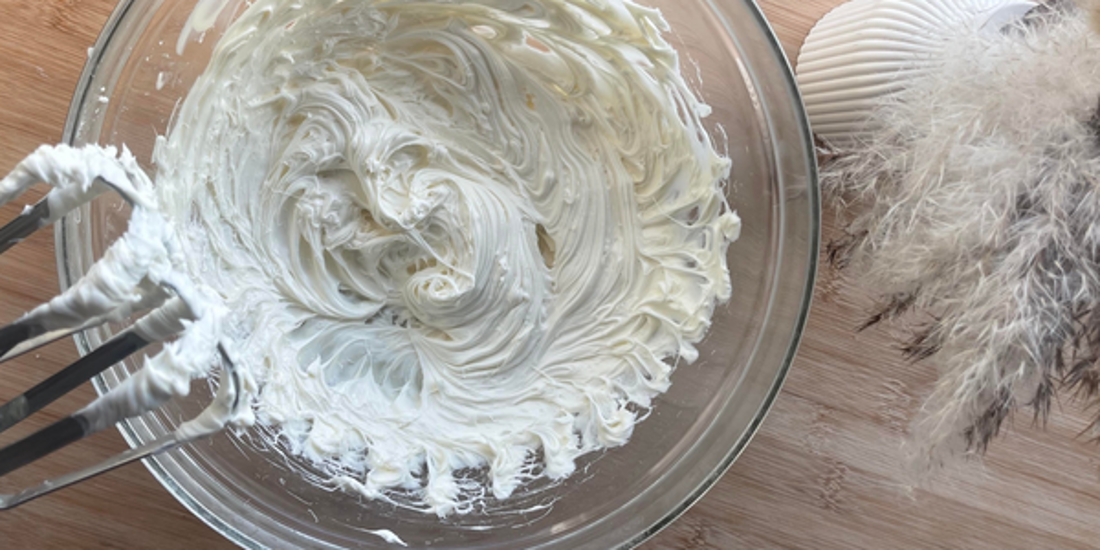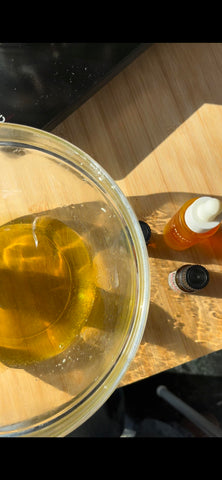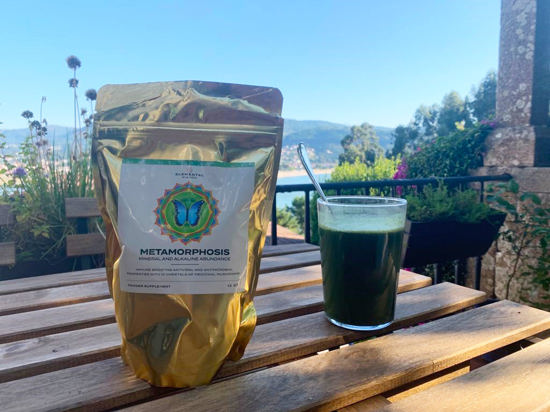Rose & Grapefruit Essential Hand Cream
Posted: 20 Jan 2024 by MYG

At MasterYourGreatness we prioritise our health from whipping up delicious nutrient-packed meals, taking MYG Products and creating homemade skincare treasures.
At MasterYourGreatness we prioritise our health from whipping up delicious nutrient-packed meals, taking MYG Products and creating homemade skincare treasures. Every moment is a celebration of holistic well-being. 🌸💚
Why do we try to make all our skincare products ourselves?
Control over Ingredients:
- When you make your own skincare products, you have complete control over the ingredients. You can choose high-quality, natural, and organic ingredients, avoiding harmful chemicals, preservatives, synthetic fragrances commonly found in commercial products.
Cost-Effectiveness:
- Creating your skincare products can be cost-effective in the long run, as many natural ingredients can be more affordable than high-end commercial products. Plus, you can buy ingredients in bulk and make multiple batches.
Empowerment and Creativity:
- This is why we love to make our own skincare products, it is super fun and; an empowering experience. You get to experiment with various ingredients and formulations, tailoring the process to your preferences and skin needs.
Transparency:
- Commercial products often have complex ingredient lists, and it can be challenging to understand what each ingredient does. Making your own skincare brings transparency to your routine, and you know exactly what you're putting on your skin.

🌹GRAPEFRUIT&ROSE ESSENTIAL HAND CREAM
Shelf life is one year
INGREDIENTS :
- 100G Shea butter
- 50G Coconut oil
- Essential oils of your choosing - we used eucalyptus, grapefruit, and rose oil.
- 2/4 drops of vitamin E oil
RECIPE:
- Melt coconut oil and shea butter in a double boiler - melt slowly do not let boil.
- Once liquified take off heat and let cool for a little.
- Add vitamin E oil , essential oils and stir.
- Refrigerate until solid.
- Once solid remove from fridge and let it rest slightly so it's easier to work with
- Whip up until you find the consistency that you desire.
What are the potential benefits of each ingredient ?
SHEA BUTTER :
- Shea butter is rich in fatty acids, including oleic acid, stearic acid, and linoleic acid. These fatty acids help to moisturize and nourish the skin, providing deep hydration. It's particularly beneficial for dry or dehydrated skin.
- It is a good source of vitamins A, E, and F. Vitamin A is known for its ability to promote healthy skin cell growth, vitamin E is an antioxidant that helps protect the skin from free radicals, and vitamin F provides essential fatty acids.
- Has anti-inflammatory properties that can help soothe irritated or inflamed skin. It may be beneficial for conditions such as eczema, dermatitis, and other inflammatory skin conditions.
- Shea butter's combination of vitamins, antioxidants, and fatty acids can contribute to anti-aging effects. It helps to protect the skin from premature aging and may reduce the appearance of fine lines and wrinkles.
When using shea butter, it's recommended to choose unrefined, raw, or organic varieties to ensure that the beneficial nutrients are preserved. Additionally, it's essential to perform patch tests, especially if you have sensitive skin, to ensure that you don't have any adverse reactions.
COCONUT OIL :
- Coconut oil is generally well-tolerated by most skin types, including sensitive skin. However, it's essential to perform a patch test, especially if you have allergies or sensitivities.
- Lauric acid in coconut oil has antimicrobial and antifungal properties. It can help combat bacteria, fungi, and viruses, making it beneficial for conditions like acne and fungal infections.
- The fatty acids in coconut oil help strengthen the skin barrier, preventing moisture loss and protecting the skin from external irritants.
- Due to its antimicrobial and anti-inflammatory properties, coconut oil can aid in the healing of minor wounds, cuts, and abrasions.
VITAMIN E OIL :
- Vitamin E is known for its moisturizing properties. It helps to lock in moisture, preventing dryness and promoting soft, supple skin. This makes it particularly beneficial for individuals with dry or dehydrated skin.
- May aid in reducing the appearance of scars and promoting skin regeneration. It can be applied to scars, stretch marks, and other imperfections to help improve skin texture and tone.
- Vitamin E is often included in anti-aging skincare products due to its ability to support collagen production. Collagen is crucial for maintaining skin elasticity and firmness, which can help reduce the appearance of fine lines and wrinkles.
EUCALYPTUS OIL :
- Eucalyptus oil can act as a natural cleanser for the skin. It may help remove excess oil, dirt, and impurities, promoting a clearer complexion.
- Has a cooling sensation can provide relief for itchy skin caused by conditions like insect bites, rashes, or mild allergic reactions.
- Has astringent qualities, which means it may help tighten and tone the skin. This can be beneficial for those with oily or acne-prone skin.
- The aroma of eucalyptus oil is known for its refreshing and energizing qualities. Using eucalyptus-infused products on the skin can provide a rejuvenating experience.
Eucalyptus oil is potent and should be used with caution. Always dilute it with a carrier oil before applying it to the skin, and perform a patch test
ROSE & GRAPEFRUIT ESSENTIAL OILS :
- The sweet and floral scent of rose oil is known for its calming and relaxing effects. Incorporating rose oil into skincare products or aromatherapy routines can contribute to a sense of well-being.
- The natural acids in grapefruit oil may help brighten the skin and promote a more even skin tone. It can be beneficial for those with hyperpigmentation or dull skin.
- Aromatherapy with grapefruit oil may help reduce stress and uplift the mood. Stress reduction can indirectly benefit the skin by minimizing the impact of stress-related skin issues.
- Rose oil is thought to help balance sebum production, making it suitable for both dry and oily skin types. This balancing effect can contribute to a more harmonious complexion.
- The anti-inflammatory properties of rose oil can help reduce redness and irritation associated with conditions like rosacea or sensitive skin.
With all these ingredients we advise to perform a patch test to check for any adverse reactions, especially if you have sensitive skin. If you have specific skin concerns or conditions, consult with a dermatologist before incorporating essential oils into your skincare routine.
Join us on this journey of self-love and self-care, where every concoction is a reminder that true beauty radiates from a happy, healthy soul.
DISCLAMER
These products are not intended to diagnose, treat, cure or prevent any disease. All information presented here is not meant as a substitute for or alternative to information from healthcare practitioners. Please consult your healthcare professional about potential interactions or other possible complications before using any product.
From the blog

A Footballers Journey with Sports Hypnotherapy
I came to see Claire for hypnotherapy to help me with my performance in my game. I know I am good enough but putting it into practice and showing it on the pitch even if other people would react badly was stopping me from playing with freedom.

What Mushrooms Can Do For Your Health
Mushrooms are fascinating powerhouses of nutrients and compounds that provide many positive health benefits for humans, including...

Metamorphosis Morning Smoothie Recipe
Boost Your Energy & Vitality With Our Metamorphosis Smoothie.